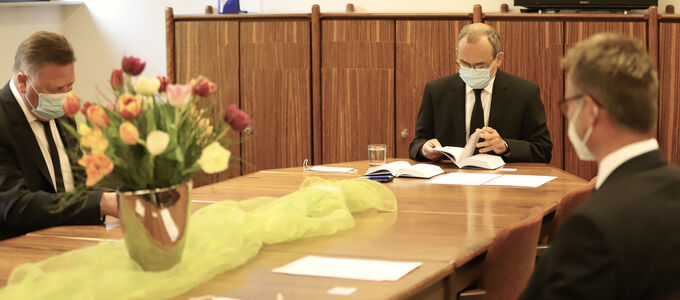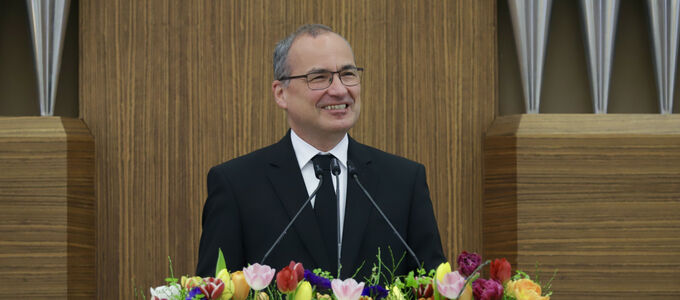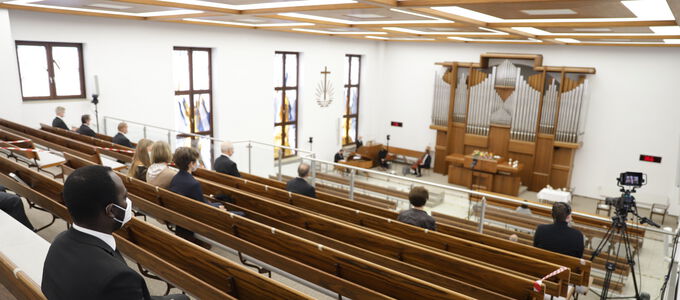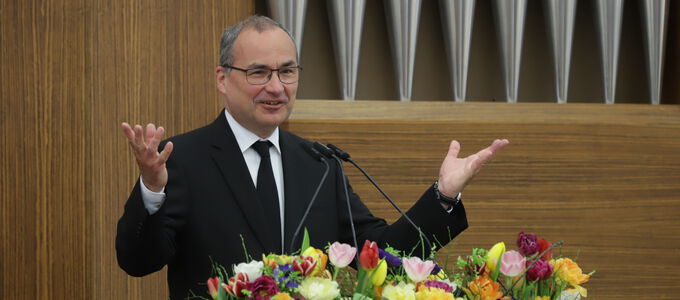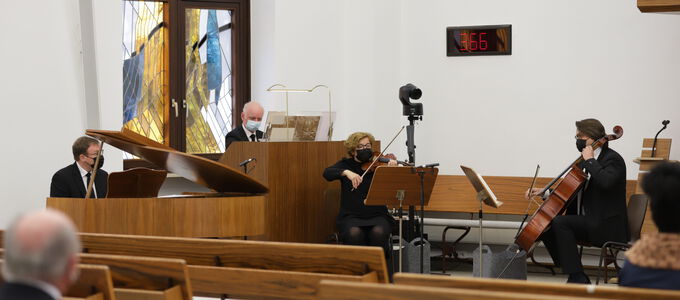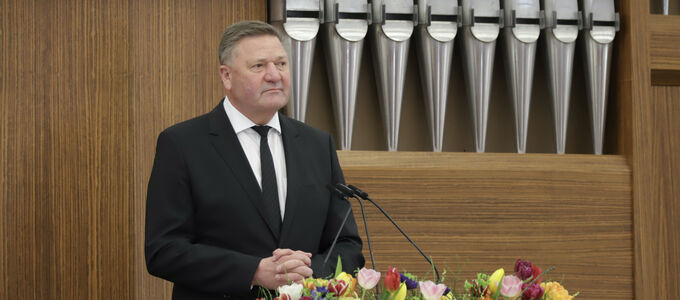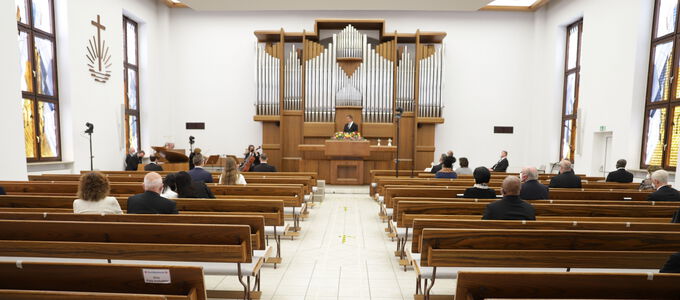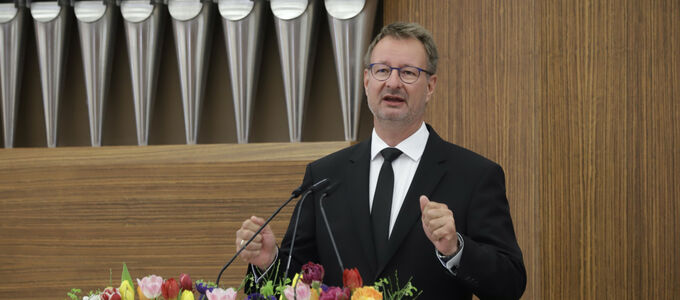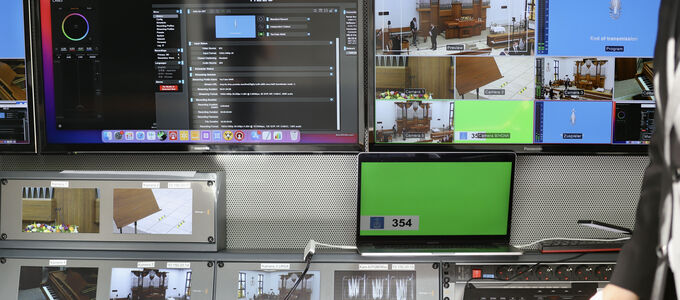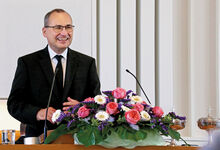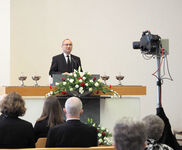“It’s too early to take stock of our commitment to God”
A student is not above his teacher, which really goes without saying, right? And yet, attempts to be smarter than one’s teacher are made again and again in life. Chief Apostle Jean-Luc Schneider says why this also has its good sides.
Sunday, 2 May 2021. The Chief Apostle is preaching behind the altar of our Frankfurt-West church in Germany, but not in German and not for the local congregation, but in English for congregations in Australia and New Zealand. The service started early because of this so that the brothers and sisters in the Southern Hemisphere could still enjoy an afternoon service.
Learning from the Master
“A disciple is not above his teacher, but everyone who is perfectly trained will be like his teacher,” it says in Luke 6: 40, which the Chief Apostle used to base his sermon on. His message was: as disciples we learn from Him to be like Him. This is a lot to expect, as it turns out.
“We are not above our teacher” at first sounds like a comfort, the Chief Apostle said. But in difficult times it can happen that we doubt the love of God. Even the Master—the Son of God, Jesus Christ—had to suffer. He too enjoyed God’s goodness and care. The same happens to humankind today: suffering and God’s help. It is up to us to believe in God and to trust in Him.
“As a human being Jesus did not know when He would return. Nor did He understand why His Father abandoned Him on the cross.” It is similar with us: “We are not more than Jesus. We do not know everything and we do not understand everything that God does. Let us do as Jesus did and trust in God.”
The Chief Apostle mentioned another point from Scripture in his sermon: “The Lord was perfect and full of love for others. But not everyone accepted, respected, appreciated, or loved Him.” Drawing a parallel to Christ’s disciples today, he said: “Especially we, who are not perfect, cannot expect to be accepted and valued by everyone.” In the eyes of the people, the mission of Jesus ended in complete defeat. Only after His resurrection did His victory become clear. “We are not better off than Jesus. Today it sometimes seems useless that we serve the Lord. The first resurrection will, however, prove us wrong. Right now, it is far too early to take stock of our commitment to God!”
Training objective: implementing the teaching
The cited Bible text is also an exhortation of the Lord to His congregation to care for and serve one another as He served His disciples. “Sometimes it is the very person we have been so kind to who harms us. That makes it difficult to forgive.” Thinking of Jesus at such times is helpful, the Chief Apostle said. After all, he gave His life for us.
The Chief Apostle’s following question was insistent: “Why should our neighbour be more guilty towards us than we are towards Jesus? We cannot expect more than Jesus! If He forgives us, we have no reason not to want to forgive others.”
All these points are the basis for our training, the Chief Apostle said in summing things up. “To be well qualified, the student must know, understand, and be able to put into practice what he has been taught. Knowledge can be acquired by hearing the preaching of the gospel and reading the Bible.” Assimilating the teaching requires that we personally explore the question: what does Jesus expect of me? Those who know that can apply the teaching of the gospel. Skills can only be honed if they are practised. “You only learn to forgive if you are hurt. You only learn to reconcile if you have experienced separation. And only in times when we do not understand God, do we actually learn to lay everything into His hands.” With this the Chief Apostle made it clear that the problems we encounter could be good opportunities to further develop our spiritual skills. This is the only way we can become like the Master.
Article info
Author:
Date:
Keywords:
Peter Johanning
02.06.2021
Asian,
Chief Apostle,
Divine service



